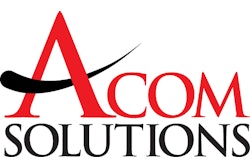Automaker selects Open Harbor trade management solution to support multilateral import/export clearance procedures for new car
San Carlos, CA — June 21, 2004 — European automobile manufacturer Renault is set to use a global trade management solution from Open Harbor to support the multilateral import and export customs procedures for its recently launched LOGAN car.
Headquartered in Boulogne Billancourt, France, Renault employs more than 130,000 people around the world, and the company had 2003 sales of $45.4 billion. Renault is pursuing a strategy of growth and international expansion, and the company intends to achieve approximately half of its sales outside Western Europe in the longer term.
Exporting vehicles made in Western Europe to countries such as Russia, Morocco, and Colombia would result in the cars being priced beyond the means of the emerging middle class in these regions. Therefore, Renault's management decided on a mixed-sourcing strategy of having the $6,000 LOGAN automobile assembled on-site, using both locally sourced and imported Renault parts.
For example, Renault's Romanian subsidiary Dacia, acquired in 1999, manufactures cars using Renault and local parts, and the company then sells these vehicles in the local market as well as to other countries in Central and Eastern Europe. This strategy, while embracing one of Renault's strategic goals of quality, cost control, and just-in-time delivery, increased the complexity of managing customs clearance, both between Europe and the developing countries, and between these countries themselves.
After evaluating a number of options, including the development of a home-grown solution, Renault's tax and customs department selected Open Harbor's Global Security and Compliance solution. Open Harbor hosts the application, while Renault has 24/7 availability and a personalized user interface to access its data. This approach suited Renault's desire for an open, flexible system to interconnect all of its global partners, without incurring heavy development and maintenance costs.
Open Harbor's online solution helps store and manage the international trade characteristics of the LOGAN parts catalog, including country-specific harmonized tariff system codes. This simplifies and automates the customs procedures at shipment time, according to the solution provider.
Open Harbor's solution, launched in September 2003, includes trade compliance rules for 64 countries, which the provider says covers 95 percent of global commerce. The solution is designed to help companies eliminate shipment delays and fines imposed by the customs authorities, as well as to reduce costs associated with international trade compliance. The online Global Security and Compliance solution helps store and manage the international trade characteristics of a customer's catalog, including country of origin and country-specific harmonized tariff system codes.
"Most trade compliance solutions on the market enable import and export procedures between the home country and other countries," said Bill Walsh, CEO at Open Harbor. "The strategic advantage that Open Harbor's solution brings to global manufacturers like Renault is to automate trade compliance processes multilaterally, from any country to any country, facilitating their internationalization strategies and helping them to target new markets."
For more information on the global supply chain, with a focus on security issues, see "Building the Secure Supply Chain," the Net Best Thing article in the June/July 2003 issue of iSource Business.
San Carlos, CA — June 21, 2004 — European automobile manufacturer Renault is set to use a global trade management solution from Open Harbor to support the multilateral import and export customs procedures for its recently launched LOGAN car.
Headquartered in Boulogne Billancourt, France, Renault employs more than 130,000 people around the world, and the company had 2003 sales of $45.4 billion. Renault is pursuing a strategy of growth and international expansion, and the company intends to achieve approximately half of its sales outside Western Europe in the longer term.
Exporting vehicles made in Western Europe to countries such as Russia, Morocco, and Colombia would result in the cars being priced beyond the means of the emerging middle class in these regions. Therefore, Renault's management decided on a mixed-sourcing strategy of having the $6,000 LOGAN automobile assembled on-site, using both locally sourced and imported Renault parts.
For example, Renault's Romanian subsidiary Dacia, acquired in 1999, manufactures cars using Renault and local parts, and the company then sells these vehicles in the local market as well as to other countries in Central and Eastern Europe. This strategy, while embracing one of Renault's strategic goals of quality, cost control, and just-in-time delivery, increased the complexity of managing customs clearance, both between Europe and the developing countries, and between these countries themselves.
After evaluating a number of options, including the development of a home-grown solution, Renault's tax and customs department selected Open Harbor's Global Security and Compliance solution. Open Harbor hosts the application, while Renault has 24/7 availability and a personalized user interface to access its data. This approach suited Renault's desire for an open, flexible system to interconnect all of its global partners, without incurring heavy development and maintenance costs.
Open Harbor's online solution helps store and manage the international trade characteristics of the LOGAN parts catalog, including country-specific harmonized tariff system codes. This simplifies and automates the customs procedures at shipment time, according to the solution provider.
Open Harbor's solution, launched in September 2003, includes trade compliance rules for 64 countries, which the provider says covers 95 percent of global commerce. The solution is designed to help companies eliminate shipment delays and fines imposed by the customs authorities, as well as to reduce costs associated with international trade compliance. The online Global Security and Compliance solution helps store and manage the international trade characteristics of a customer's catalog, including country of origin and country-specific harmonized tariff system codes.
"Most trade compliance solutions on the market enable import and export procedures between the home country and other countries," said Bill Walsh, CEO at Open Harbor. "The strategic advantage that Open Harbor's solution brings to global manufacturers like Renault is to automate trade compliance processes multilaterally, from any country to any country, facilitating their internationalization strategies and helping them to target new markets."
For more information on the global supply chain, with a focus on security issues, see "Building the Secure Supply Chain," the Net Best Thing article in the June/July 2003 issue of iSource Business.










